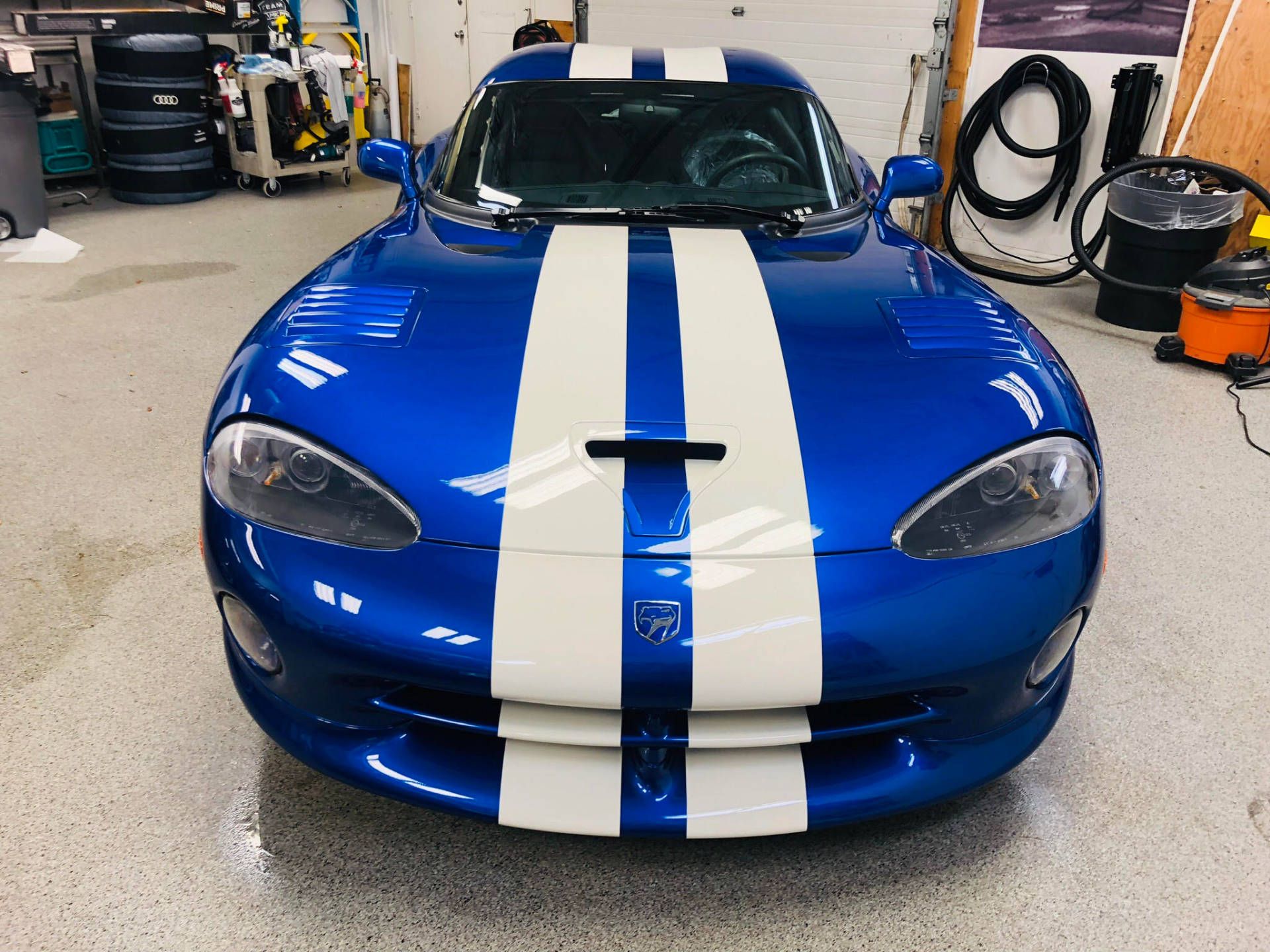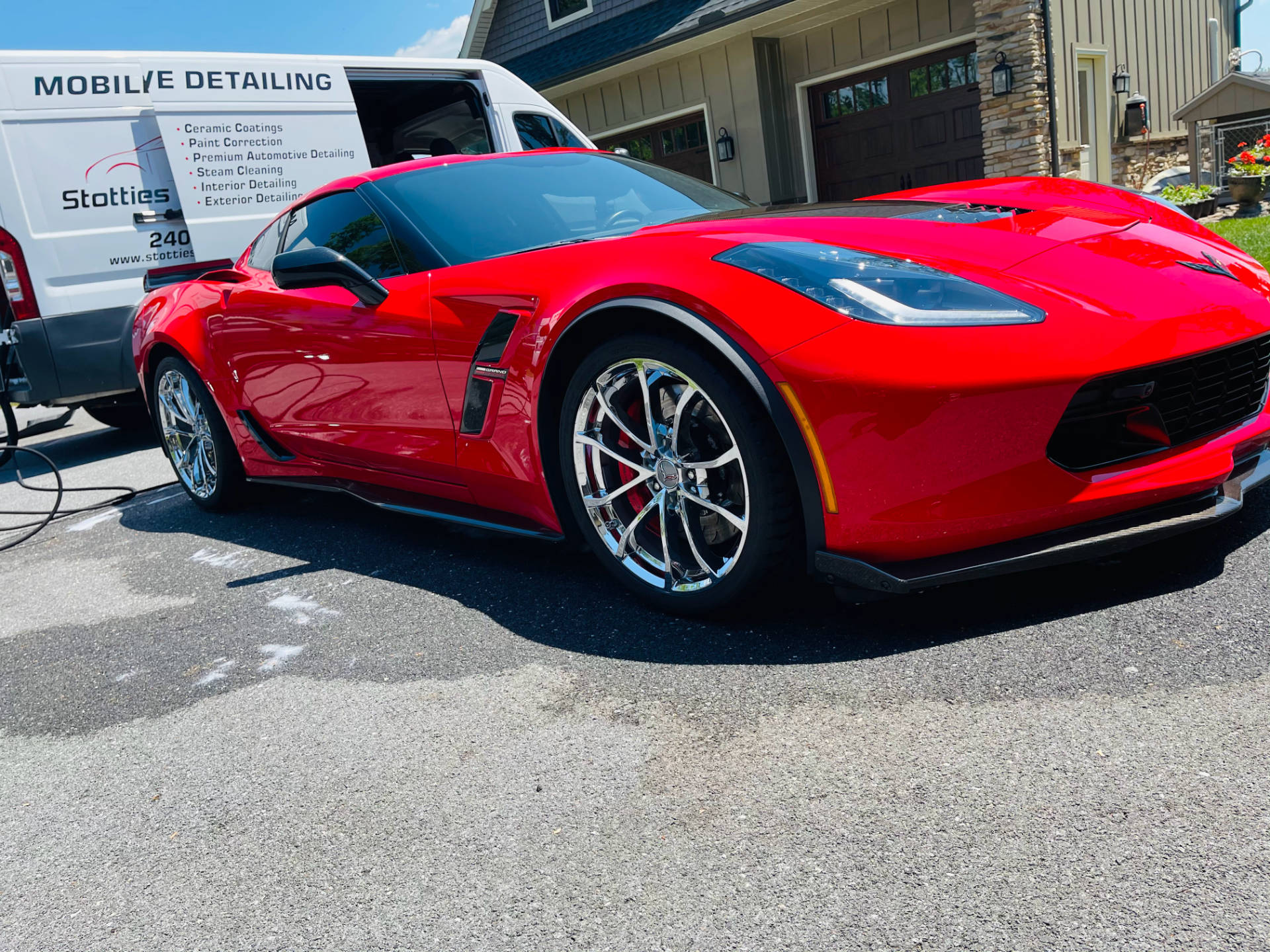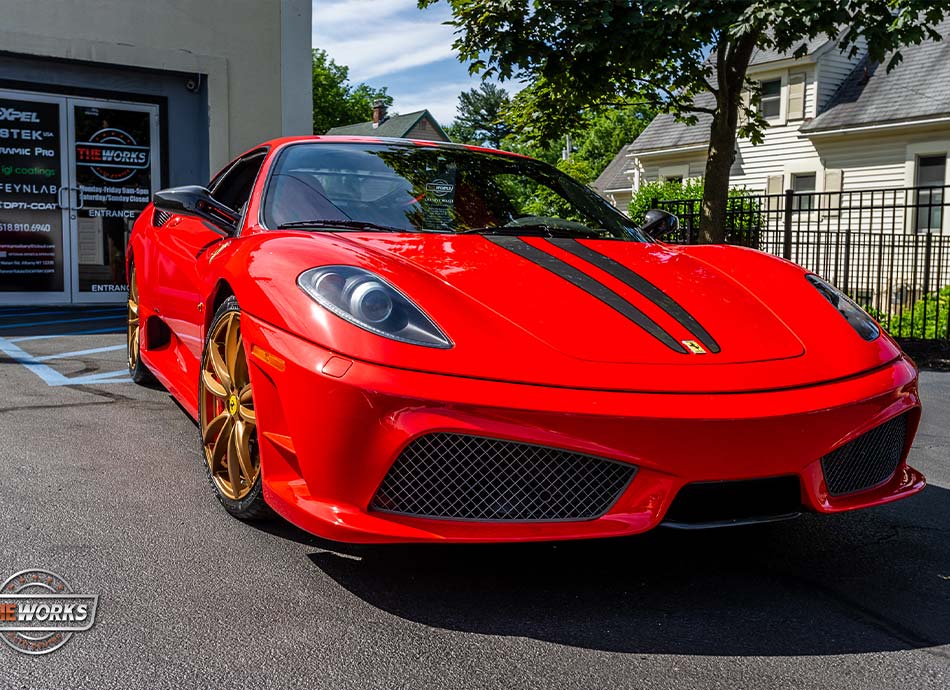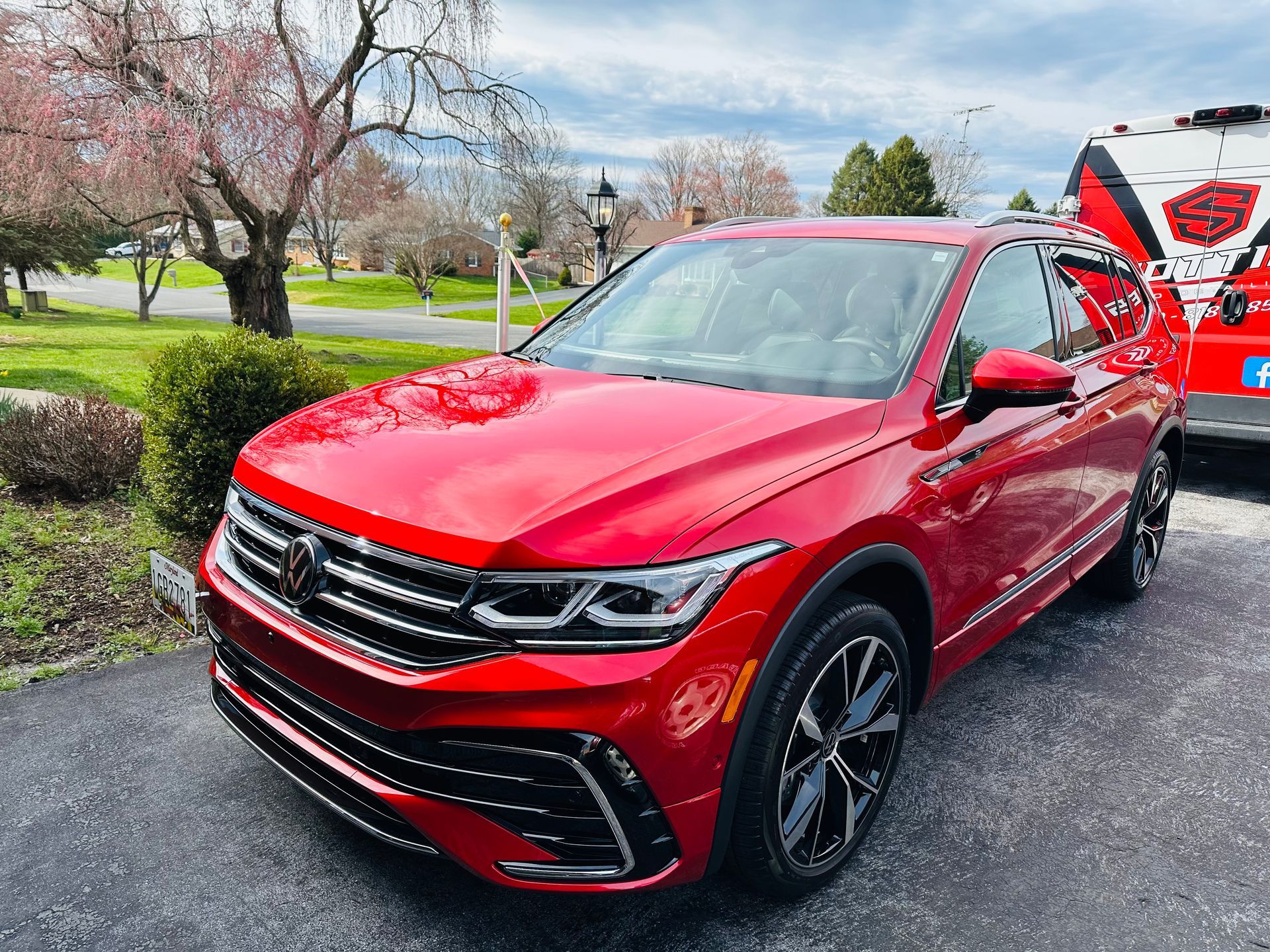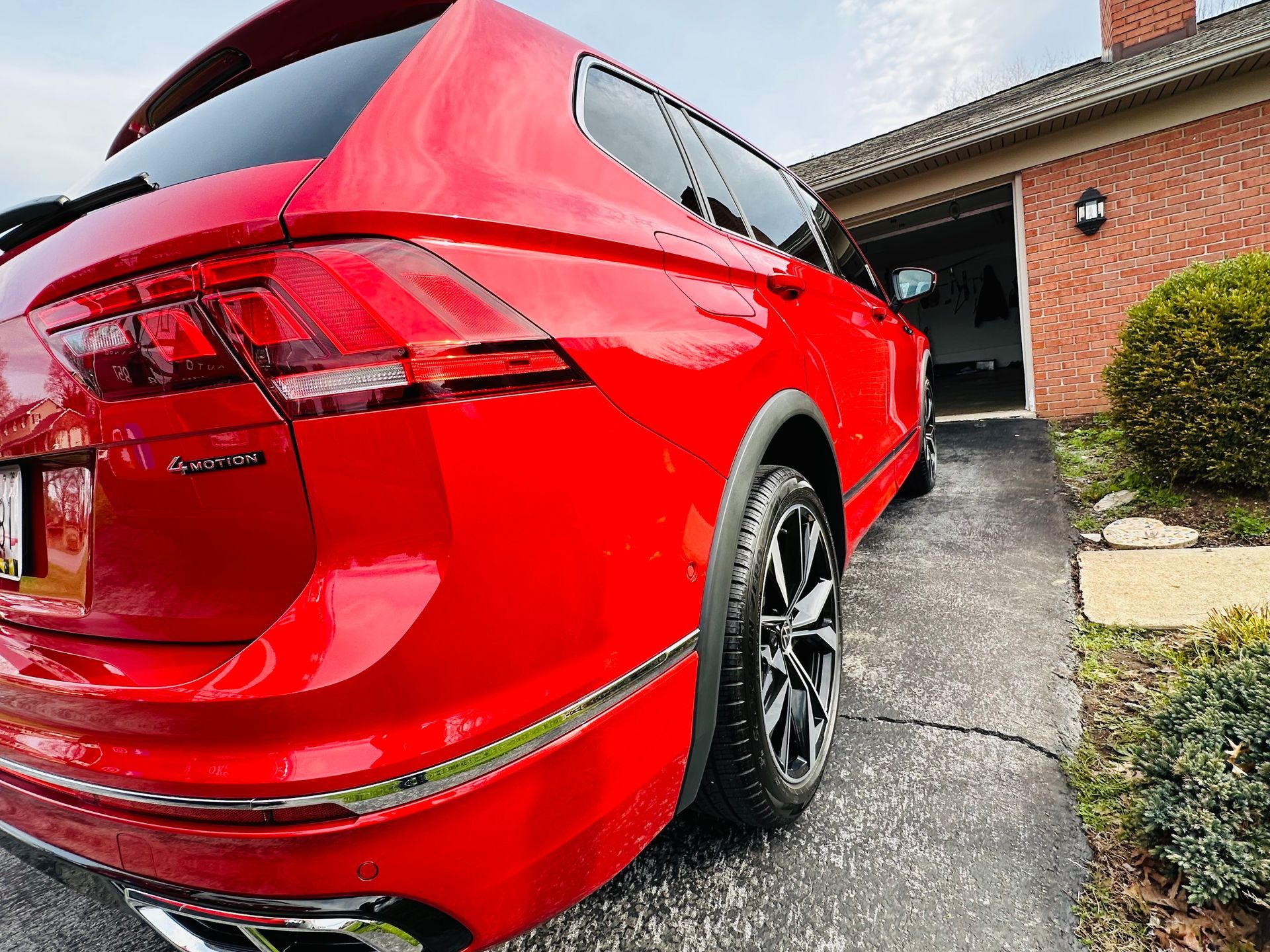When that shiny ceramic coating you invested in starts to show signs of damage, it can be a bit disheartening. After all, you want your vehicle to look its best and stay protected from the elements. But don't worry—damage doesn’t mean your investment is lost! Understanding how to care for your ceramic coating and knowing the steps to take after it's been compromised can help restore its brilliance. In this article, we’ll walk through the signs of damage, effective inspection methods, and the best solutions for keeping your car looking great while ensuring that the protective shield continues to serve its purpose.
If your ceramic coating gets damaged, it typically requires repair through reapplication in the affected area rather than replacing the entire coating on your vehicle. It’s crucial to allow any repaired paint to cure fully, often recommended between 30 to 90 days, before applying a new ceramic coating to ensure optimal adhesion and protection.
Identifying Damage to Your Ceramic Coating
Knowing when your ceramic coating is damaged can save you time, money, and unnecessary stress. Typical signs include swirl marks that mimic spiderwebs on a smooth surface or dull spots that make specific areas look faded. Water spots that don’t wash away can also signify deeper issues; these often start as mineral deposits settling onto the coating but may indicate something more profound if they remain stubborn. It’s like trying to wipe away a stubborn ink stain on your favorite shirt—sometimes a little extra attention is required to get to the root of the problem.
Take a moment to inspect your vehicle under direct sunlight or bright light, as this reveals imperfections better than dim lighting. Swirls will almost seem to dance under the light, while dull patches poke out from shiny areas, betraying their faded presence. One of my tricks is using a well-placed flashlight or stepping into the sun, making it easier to catch subtle inconsistencies that could go unnoticed otherwise.
Step I - Clean the Surface
Before diving into your inspection, ensure your car is thoroughly cleaned with a pH-neutral shampoo. This is crucial because any loose dirt or debris can interfere with your examination, hiding potential damage. Using a gentle wash mitt, carefully scrub every inch of the surface, paying particular attention to frequently touched areas where debris might gather.
Step II - Inspect with Lighting
Once you've finished washing the vehicle, it’s time for inspection magic! Use a bright flashlight or park your car where direct sunlight hits its surface efficiently. Remember: The more light you have, the easier it becomes to spot abnormalities such as micro-swirls or damages and imperfections. You'll find that what seems in good condition under normal conditions might reveal flaws under scrutiny.
Step III - Use a Microfiber Cloth
After you're equipped with your observational tools and have cleaned up the car, grab a soft microfiber cloth and start gently rubbing different sections of your vehicle's surface. This tactile approach allows you not only to see but also to feel for rough patches that may suggest underlying issues beneath the ceramic coating. Just like checking for bumps along a fresh road before driving, it's all about ensuring everything feels right.
Having identified and inspected the damage closely, you're now better prepared to explore how seriously these anomalies could affect your vehicle and what options are available for repair.
Impact of Temperature and Humidity
Temperature and humidity play significant roles in the curing process of ceramic coatings. Ideally, these coatings thrive in a controlled environment with temperatures ranging from 10°C (50°F) to 30°C (86°F) and humidity levels below 70%. Conditions within this ideal range effectively form chemical bonds, resulting in a stronger protective layer that adheres brilliantly to the vehicle's paint.
When temperatures dip below 10°C (50°F), the curing time can exponentially increase. Reports suggest that it might take two to three times longer for the coating to fully set compared to warmer conditions. On the opposite end, each 10°F (5.5°C) increase can reduce curing time by approximately 20-30%. Essentially, if you're applying ceramic coating in an environment that's too chilly, it's like trying to rush a cake in a cold oven—you're likely going to be disappointed with the final product.
- Ideal Temperature Range: 10°C to 30°C
- Curing Time Factors: Every 10°F increase reduces curing time by up to 30%.
- Cold Weather Caution: Below 10°C means significantly delayed curing; allow for extra time.
Furthermore, humidity also plays a significant role. High humidity levels can inhibit proper curing and may extend drying time by an additional 24-48 hours. To put it simply, excessive moisture in the air can interfere with the chemical bonding process that makes ceramic coatings strong and resilient. Therefore, during warmer months with high dew points or rainy weather, finding a sheltered area for application becomes crucial.
Ensuring ideal conditions for applying ceramic coatings is paramount for maximizing their effectiveness. Taking into account these environmental factors prepares you for what lies ahead regarding application techniques and effectiveness.
Benefits of a Fully Cured Coating
When it comes to protecting your investment in your vehicle, the advantages of a fully cured ceramic coating truly shine. Not only does it provide an exceptional layer of protection, but it also dramatically enhances the aesthetic appeal of your car. Imagine driving a vehicle that looks pristine while also standing resilient against the elements!
Advantages of Full Curing
- Durability: Once fully cured, the coating becomes highly resistant to swirls, chemicals, and harmful protection, making it one of the most significant benefits. Instead of worrying about tree branches scratching your paint or bird droppings corroding it, you can feel at ease knowing that your coating will absorb those minor blows.
- Hydrophobic Properties: This coating's superior hydrophobic properties mean that it effectively rejects water and dirt. Water beads up and rolls off, taking along any dust or grime! This results in less time cleaning and more time enjoying your ride.
- Enhanced Gloss: The completion of the curing process brings out an impressive high-gloss finish that resembles a showroom shine. If you've ever seen a freshly polished car glimmer under the sun, you'll understand just how visually rewarding fully cured ceramic coatings can be.
- Easy Maintenance: After the coating has fully cured, maintaining that pristine look becomes significantly easier. With contaminants finding it hard to cling to the surface, a simple rinse or quick wipe-down can keep your car looking fresh and clean.
Consider it like curing concrete; initially, it may seem hard, but its full strength and resilience develop over time. Just like concrete needs time for proper curing to ensure long-lasting stability and functionality, so does your ceramic coating need optimal conditions to reach its full potential.
Consequently, how you manage and optimize the curing process can directly impact these substantial benefits, turning what could be a routine maintenance task into a transformation for your vehicle.
To experience all these advantages firsthand and protect your investment, consider contacting
Stotties Mobile Auto Detailing today! Call us at (240) 818-1857 to learn more about our ceramic coating services!


